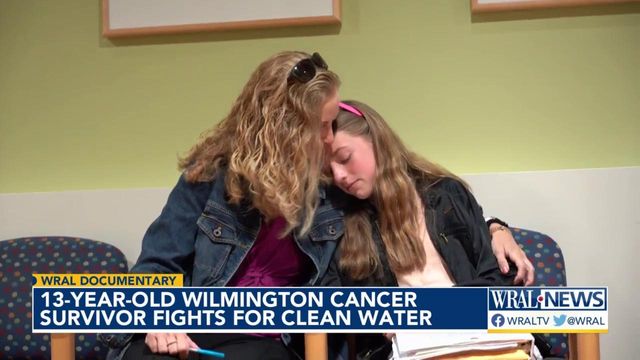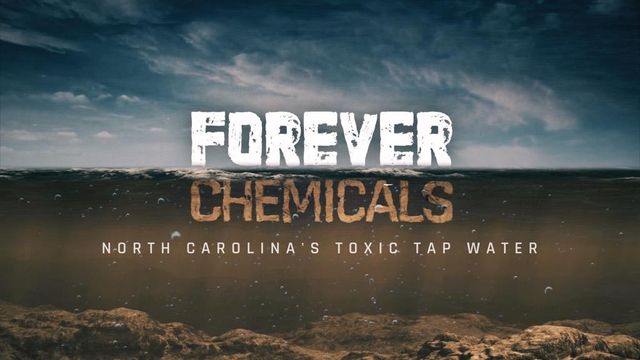13-year-old NC cancer survivor fights for clean water
Thousands of people are fighting for clean drinking water in North Carolina after a plant dumped chemicals into the Cape Fear River for decades.
It was the focus of our latest “WRAL Documentary “Forever Chemicals: North Carolina’s Toxic Tap Water”. It premiered Wednesday night.
The environmental crisis has turned ordinary people, including kids, into advocates. It includes Abigail Herman, 13, who had kidney cancer. She was diagnosed at 4 years old.
“By that time, it had spread to both [of] my lungs also,” Abigail said. “I had to go through about three months … of chemotherapy.”
Her mother, Chris Herman, remembers every treatment.
“She's just, and she was so innocent and so trusting and you just saw like, just her soul break,” Chris Herman said of daughter.
Abigail is in remission.
The family lives in Wilmington and is helping to fight for clean water. New Hanover County is one of several counties that gets its drinking water supply from the Cape Fear River.
“My doctor told me that I have to drink water to keep my kidneys healthy and that it's one of the best ways to keep them healthy,” Abigail said. “And, it's like my medicine, yet … the water here is poisoned.”
As shown in the WRAL Documentary, a facility in Fayetteville dumped chemicals and byproducts into the Cape Fear River for decades, contaminating the drinking supply for hundreds of thousands of people.
The chemicals are part of a class of compounds known as PFAS.Dangerous man-made toxins called forever chemicals because they never break down and build up in our bodies and the environment. Forever chemicals have been linked to negative health problems including cancer, liver damage and birth defects.
The Hermans are part of Clean Cape Fear, a group started by mom turned advocate Emily Donovan.
“When I testified before Congress, I just, I just told them our contamination story and I told [them] the human impacts,” Donovan said.
Clean Cape Fear is one of many nonprofits pushing for change and accountability.
Chemours, a subsidiary of Dupont, owns the plant.
A 2019 consent order between DEQ and Chemours forced the company to stop polluting PFAS into the air and water around the plant.
“The reason I brought my lawsuit is because I know that more people were affected,” said North Carolina Attorney General Josh Stein. “People all downstream have been affected.”
Clean Cape Fear sued the EPA trying to force them to require Chemours to pay for an independent research program on 54 PFAS found in the air, soil, water and people’s blood.
A judge dismissed the lawsuit.
The group recently filed a complaint with the United Nation’s Human Rights Commission to stop Chemours from expanding.
“My biggest fear is that the water's probably [going to] harm more people,” Abigail said.
Abigail has told her story at several public events. It Includes a screening of Mark Ruffalo’s movie “Dark Waters” about DuPont’s contamination crisis in Parkersburg, West Virginia.
“Okay, well we now have this story,” Chris Herman said. “Let's start telling it and see if our story helps change anything.”
WRAL News was with the family when they went to UNC Children’s Cancer Center Clinic for Abigail’s annual checkup. Her kidney cancer is still gone, but now she has skin cancer.
“It is a secondary cancer from the results of the first cancer because it was so much radiation that she had, but everything we did and all the choices we made and the doctor made was to save her 4-year-old life.” Chris Herman said of her daughter. “It was necessary because if we didn’t do that, I don’t think we’d have 13-year-old Abigail.”












